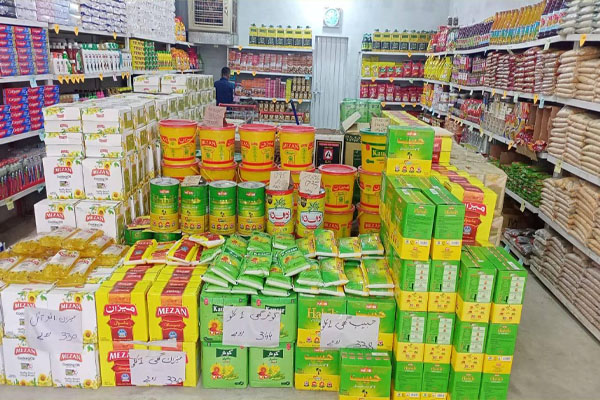jani1
Chief Minister (5k+ posts)
Why do Pakistanis like Turkey so much? The bond between Turkey and Pakistan is much deeper than you might imagine....
1. Khilafat Movement And Turkish War of Independence:
2. National Poet of Pakistan Mohammad Iqbal’s Love For Turkey:
3. Formation Of Turkey’s First National Bank:
4. Pakistan’s Support To Northern Cyprus:
5. Nagorno Karabakh Azerbaijan Conflict And Pakistan:
6. Pakistan's Role In Bosnian War:
7. Singapore Mutiny And Ottomans:
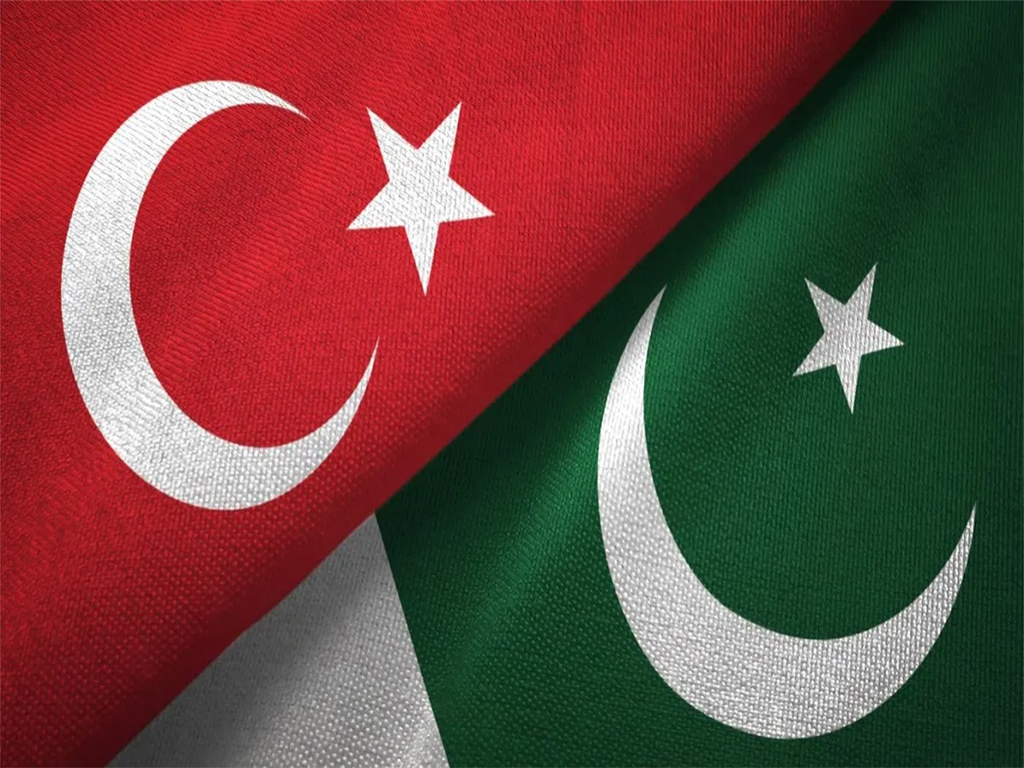
Travelers from Pakistan visiting international destinations face widely varying receptions, some expected, some unexpected, occasionally hostile and often indifferent. However, the reception that Pakistani visitors receive in Turkey is so refreshingly warm that it ends up being a cherished experience for every Pakistani that travels to Turkey for the first time. On one such trip my Taxi chauffeur having learnt that I had arrived from Pakistan, spent the entire journey from airport to the hotel in search of a YouTube video he wished to share with me. I assumed he was looking for a song to share, I felt a little concerned for both our safety, but I decided not to object out of courtesy. Having arrived at the hotel he didn’t want to let me go, until I had seen the video. The language gap, him not speaking in English and me not being able to converse in Turkish, heightened the mystery regarding this video clip. Finally having found the video, fortunately with english subtitles, we watched it together on his mobile phone. It was a Turkish TVNET interview of the Pakistani Consul General in Istanbul Dr Yousuf Junaid who narrated the story of his grandmother who had donated her gold jewelry for the Turkish War of independence as a little girl. The message of sacrifice and mutual affection between the two nations was undoubtedly emotional, and by the time the video ended I was embarrassingly misty eyed. I thanked him for sharing it with me, and hugged the gentleman before saying our goodbyes.
Pakistan’s consulate general Dr Yousuf Junaid’s interview with Turkey’s TVNET
The general impression among Pakistanis is that, the gracious attitude of ordinary Turks towards Pakistanis, be it a complimentary ‘Chai’ in a turkish restaurant or an offer of a seat at a tourist shop, may simply be due to Turkey and Pakistan being fellow muslim nations. Often, this surprising hospitality is attributed to the historical Turkic roots of our past empires and languages. With Turkey emerging as a republic after the fall of the Ottoman Empire and a fight against colonial powers, and Pakistan emerging as a republic after fall of the Mughal Empire and the colonization by British imperialists. I’ve often heard from Turkish friends that history lessons in the Turkish school system teach their students about historical friendship between the people of Pakistan and the Turks. Unfortunately, Pakistani elementary syllabus contains no such lessons, therefore references associated with this fraternal bond carry an element of humbling curiosity for us.
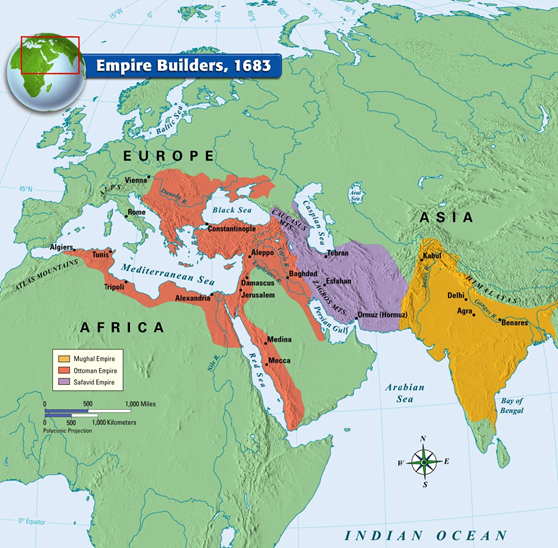
The Mughal Empire and the Ottoman Empire at their peak in 1683
Be it Turkish support to Pakistan when it comes to the Kashmir dispute or other international issues, Pakistanis are well aware of the fact that, Turkey goes out of its way to stand by Pakistan. But to understand this bond of brotherhood, and how it developed over a period of a hundred years we need to take a deeper look at the instances in our own history, when Pakistanis as a people went out of our way to stand by the Turks. Since it is our history, it is important that our younger generations must never be allowed to forget these golden deeds, which keep on bringing our way, the love and deference of our Turkish brothers. To serve this purpose, let’s take a deeper view into the origins of the Turkey Pakistan Brotherhood.
1. Khilafat Movement And Turkish War of Independence:
Khilafat Movement was established after allied victory at the end of the first world war, when Muslim leaders of British India, who would go on to lay the foundations of the Pakistan Movement belonging to All India Muslim League, and a few from the Indian National Congress, joined forces to help the Turks. They not only lobbied the British government against abolition of the Ottoman Caliphate, but also raised funds for Turkish forces to fight allied imperial powers in a war of independence under leadership of Mustafa Kemal Ataturk.
People of Turkey are relatively well versed in the history of the Turkish war of independence and the eventual abolition of Ottoman Caliphate. It is understandable for them to realize the significance of the Khilafat Movement towards their struggle for an independent Turkish Republic, however Pakistanis tend to misunderstand the Khilafat Movement as an effort to help the last Ottoman Caliph hold onto power, after the loss of the Central Powers in the Great War. Hence, it is important to look at the historical context in which the Khilafat Movement was initiated, and how it sought to influence the turn of events in Ottoman Turkey.
Pakistan’s founding fathers living under a colonial British empire after centuries of Muslim rule in India, carried an emotional burden of a progressive loss of an empire and ultimate subjugation to a foreign colonial power. They had a clear realization that the fall of Mughal empire was not the result of a single clash with hegemonic powers, rather it was a slow and steady decline spanning over a hundred years against deviously clever policies of western imperialism. Bengal was lost at the battle of Plassey in 1757, Bihar and Oudh was lost at the battle of Buxar in 1764, Mysore was lost at the Anglo Mysore war in 1799, Sindh was lost at the battle of Miani in 1843, Punjab was lost at the Anglo Sikh war in 1849, and British crown finally imposed direct control over Mughal India by deposing the last Mughal Emperor Bahadur Shah Zafar in 1857.
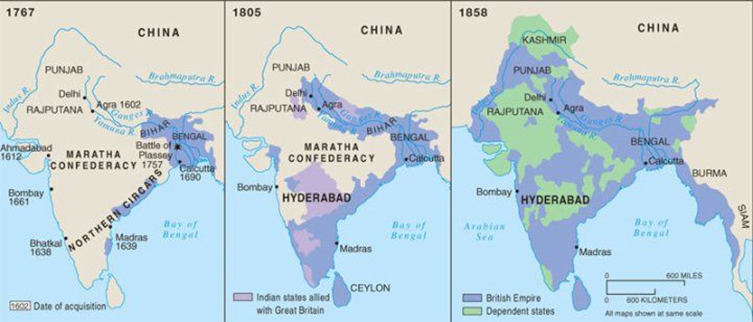
100 year colonization of Mughal Empire 1757-1857
Therefore, Indian Muslim intellectuals could clearly identify with a similar fall of the Ottoman Empire, that was not a result of defeat in the first world war, rather it was also a result of gradual decline forced by a series of intermittent wars and treaties with the western powers. Crimea was lost in the Russo-Turkish War in 1774, Algeria and Tunisia were lost to the French in 1830 and 1881 respectively, Greece was lost to Britain, France and Russia at the London Protocol in 1829, Balkans and Romania were lost at the treaty of San Stefano in 1878, Egypt was lost to the British in 1882, Libya was lost in Turco-Italian war of 1912, and finally the allied western powers descended on the shores of Gallipoli to inflict a fatal blow upon the remnants of the once mighty Ottoman Empire.
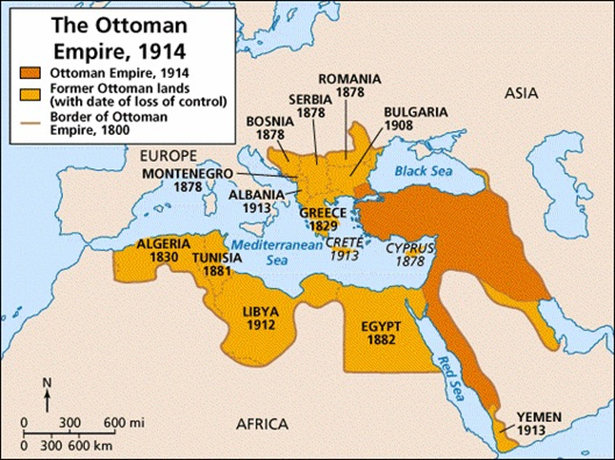
Loss of Ottoman territories up till 1914
Ottoman Empire was not only a Turkish empire,................
It was just the Turks against the world, and the Turks felt disheartened & disillusioned with this lack of ..................read more in the link below..
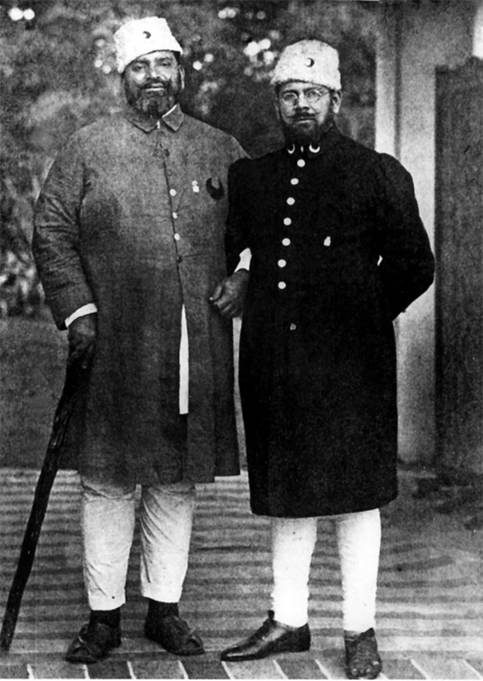
Shaukat Ali (left) and his brother Mohammad Ali Johar (right)
Ali brothers had begun their careers in fundraising by running fundraising campaigns during the Aligarh Movement, .......
In “surveying Muslim reactions in India in those years preceding World War One,....................................read more in the link below.....
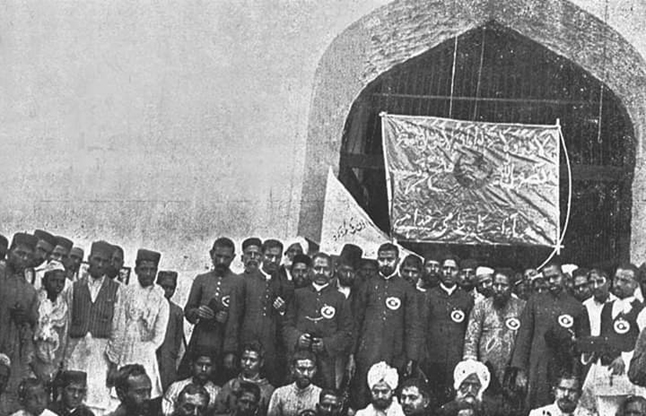
Khilafat Movement’s Green Robed Fundraising Volunteers
The Khilafat Movement was established by the muslim leadership of India, at the end of the war in 1919 to help Turkish government .........read more in the link below...
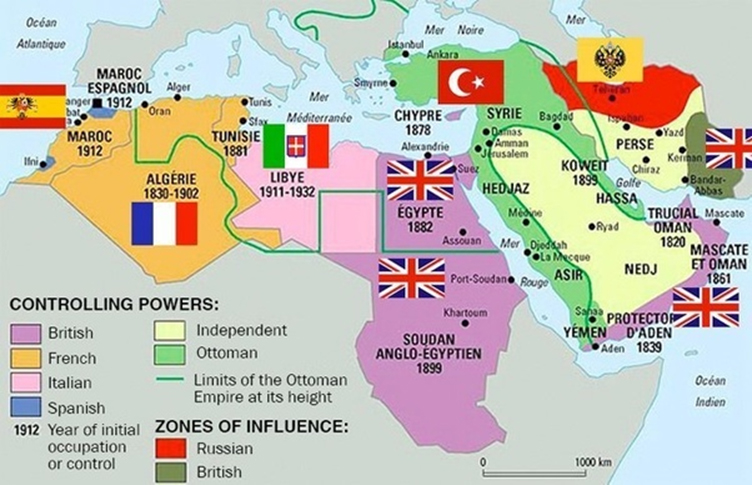
Ottoman Empire at the start of First World War
A common misconception is that the Khilafat Movement was a campaign to help the Ottoman Caliph hold onto power......read more in the link below......
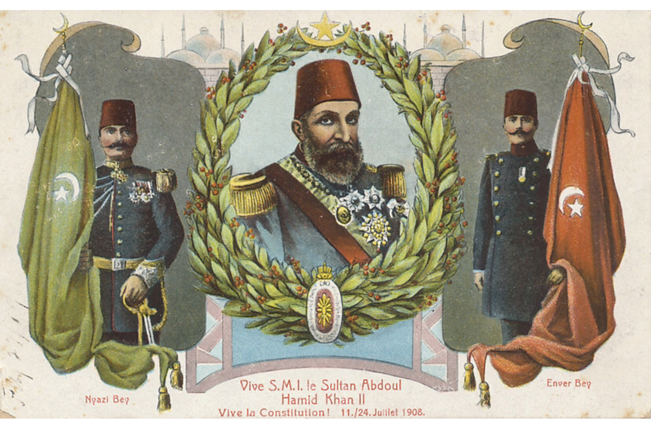
Consequently, on 24 April 1909 fearing a counter revolution by an autocratic Caliph Abdul Hamid II, the Young Turk led ‘Action Army’ under a charismatic officer Major Ahmed Niyazi imposed martial law in Istanbul, “the two chambers of the Ottoman Parliament reconvened as the Grand National Assembly, and on 27 April 1909 voted to depose Sultan Abdul Hamid II and to install his younger brother Mehmed Resad as Sultan Mehmed V.” 7 This effectively took all political powers away from the Caliph and transferred them to the Young Turk government under leadership of a triumvirate of Enver Pasha, Jemal Pasha and Talat Pasha....read more in the link below....
2. National Poet of Pakistan Mohammad Iqbal’s Love For Turkey:
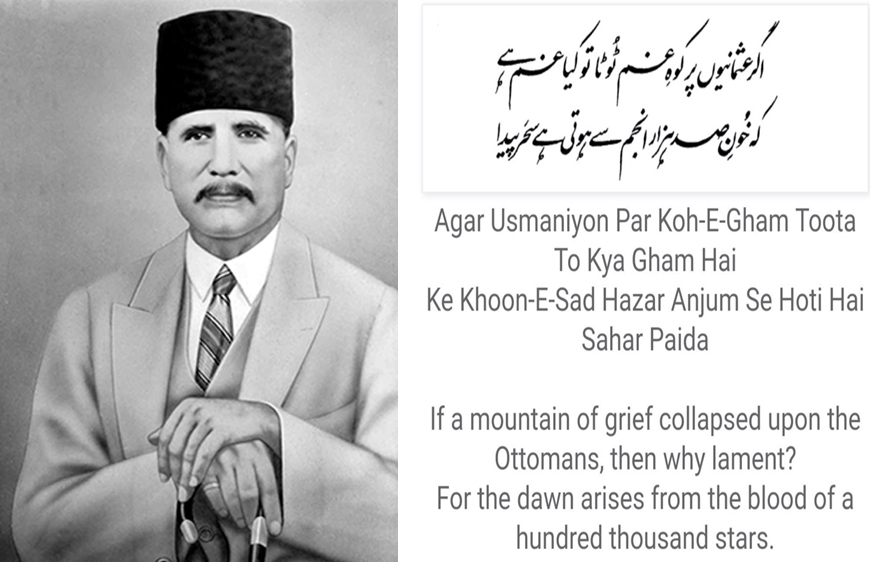
Having gone through an overview of the Turkish war of independence, Ottoman Caliph’s signing the Treaty Of Sevres, and Khilafat Movement’s support to the war of Turkish independence. It allows us to understand the context of Mohammad Iqbal’s effusive poetry in praise of the spirit of Turkish people, as well as the heroic leadership of Mustafa Kemal Ataturk. Iqbal expressed confidence in the capacity of the Turks to defeat the forces of dogmatism and regenerate themselves as a strong, free nation on the path to progress, and he described reformist policies of the Ankara government including the abolition of caliphate as a ‘judicial choice.’18 Iqbal wrote moving poems in agony at the defeats faced by Ottoman forces in the Balkans, in North Africa and in Arabia. Later, he used his verse to celebrate Turkish victories led by Mustafa Kemal at Canakkale, especially routing the Greek armies into the sea in Izmir, and to the eventual eviction of all non-Muslims foes from Anatolia.
Allama Iqbal was greatly inspired with the resolve of the Turks in those turbulent times, and his poetry follows the progress of Turkish independence in detail. Applauding the process of the abolition of the first Ottoman Parliament leading to the second Grand National Assembly in Ankara, the adoption of the Misak-i-Milli declaration, to the contents of the Turkish constitution of 1924. He has written in approval of Turkish reforms, the abolition of the Sultanate, and the foundation of the Turkish Republic. In his poem Biladul Islam, Iqbal describes Istanbul as the ‘heart of Muslim community.’19
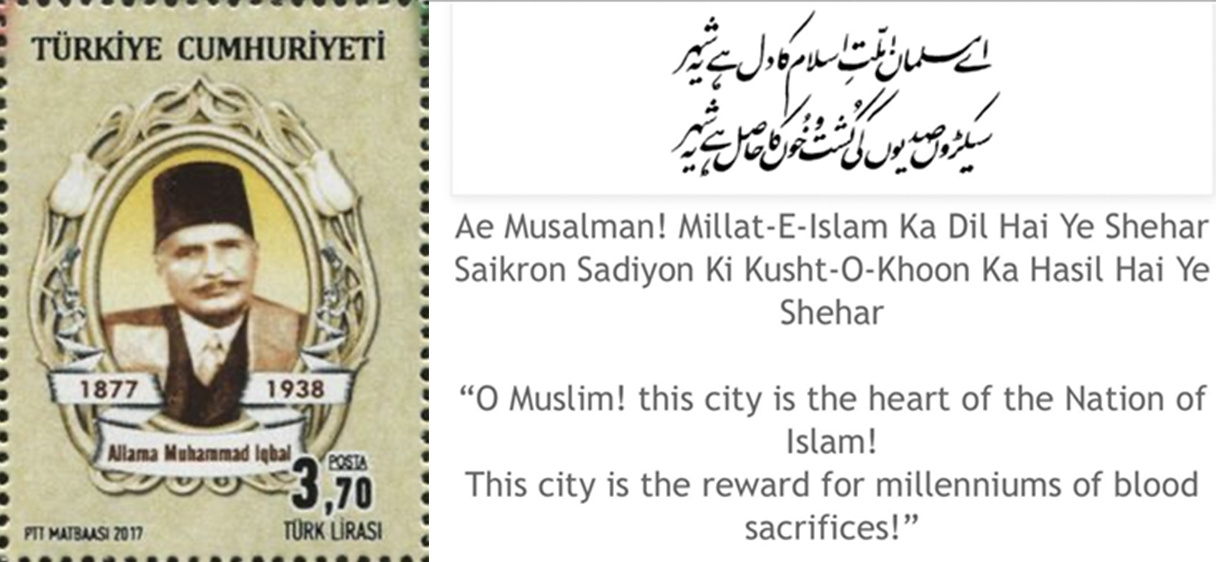
3. Formation Of Turkey’s First National Bank:
The campaigns to collect donations to support the Turkish War of Independence by Muslims from the sub-continent ended up being a very successful effort. So much so that, Mustafa Kemal Ataturk had been personally handed over around six hundred thousand Turkish Liras for the war effort. While only two hundred and twenty thousand were used for the war, the balance of three hundred and eighty thousand Turkish Liras went unused and were returned to Ataturk following the war. In July of 1924, Ataturk stated: “Paramount among measures that will liberate and augment the nation is the establishment of a bank, utterly modern and national in identity, born directly out of the people’s respect and confidence.”
4. Pakistan’s Support To Northern Cyprus:
Pakistan’s unstinted support for the Turks during the Northern Cyprus Crisis is another issue that brought the Turks closer to the people of Pakistan. Let’s briefly take a look at the conflict, in order to understand the importance of Pakistan’s support to Turkey on this issue. As we know, Turkey and Greece both are members of the North Atlantic Treaty Organization NATO, as their defence is ensured by this powerful military alliance. However, in the case of a conflict between Greece and Turkey, western countries tend to lean more towards the Greek positions. The Cypriot conflict of 1974 is a case in point that glaringly proves this bias by the NATO allies of Turkey.
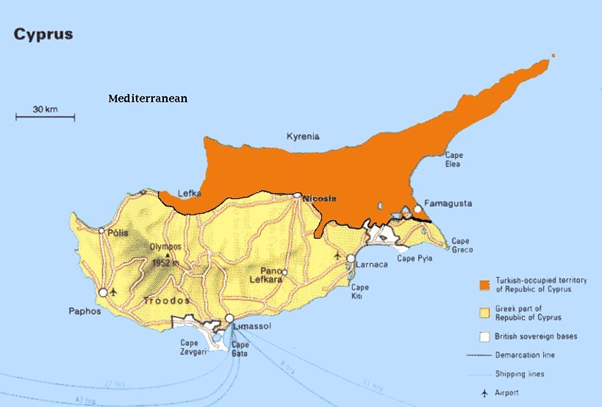
After Turkish defeat in the Turko-Russian War of 1878, Britain reached agreement with the Ottomans to lease Cyprus, as it is a strategic island in the middle of the Mediterranean Sea. The Turks agreed and Britain became the administering authority on the island. In 1912, Britain offered ‘Enosis’ meaning a union of Cyprus with Greece to the Greek state, in exchange for a British military base in Cephalonia or Argostoli in Greece. In 1915 ‘Enosis’ was offered again in return for Greek cooperation in the First World War. Greece refused both these offers. However, Greece and the Greek Cypriot population had always espoused....read more in the link below...
5. Nagorno Karabakh Azerbaijan Conflict And Pakistan:
Another reason for endearment of Pakistan to the Turkish people is our extraordinary assistance to the people of Azerbaijan, and the consistent diplomatic, political and military support to them on the dispute of Nagorno Karabakh. Azerbaijan is also a Turkic country with a 91% ethnically Turkic Azerbaijani population, and currently a member state of both the Turkic Council or Cooperation Council of Turkic States CCTS and the International Organization of Turkic Culture TURKSOY. Due to these historic and cultural ties, Turkey was the first country to recognize Azerbaijan as an independent country. Pakistan was the second country to recognize Azerbaijan after Turkey, six months before the dissolution of the USSR on 12 December 1991. Pakistan is also one of the first countries in the world to open an embassy in Baku.
Right after independence Armenian forces invaded Azerbaijani territories in Nagorno Karabakh region, and massacred a large number of Azerbaijani civilians notably in the town of Khojaly, in order to ethnically cleanse the region of Muslims. Pakistan is one of a few countries in the world that recognizes this horrific atrocity as a genocide. There have been reports that, Pakistan covertly organized and transported up to 3000 Hizb-e-Islami fighters working for Gulbadin Hekmetyar to Azerbaijan, and flew them out of Peshawar via Iran onto Baku.22 From where they were sent to the frontlines in Nagorno Karabakh to selflessly fight to save thousands of Azerbaijani lives from the oppression of the Armenian army.23
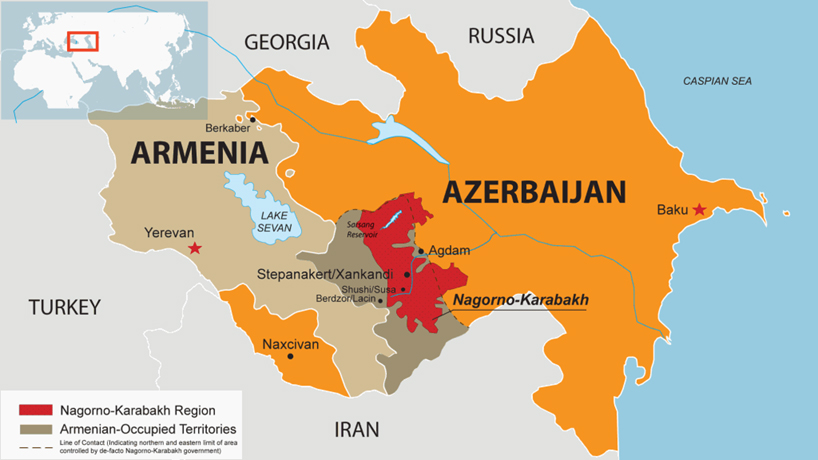
To understand how these steps truly affected sentiments of the Turks, we need to consider the historically antagonistic relationship between the Turkish people and the Armernians. Being orthodox Christians, Armenians have traditionally been Russian and Greek allies, and have always been a thorn in the side of Turkish influence in the region and the world. They were the ones who most viciously resisted the Ottoman forces during the Ottoman-Russian wars, fought them viciously in the First World War, and actively sabotaged the Turkish War of independence. When Armenians imposed blatant aggression against Azerbaijan’s independence in Nagorno Karabakh, western powers were generally sympathetic to the Armenian position. Largely due to the lobbying clout of Armenian diaspora in western countries, and due to the Armenians being fellow Christians. Were it not for Pakistan, Turkey would be the only vocal proponent of Azerbaijani positions on this dispute.
As luck would have it again, Pakistan had assumed the presidency of the United Nations Security Council in April of 1993. With the dynamic Jamshed Marker as President we swiftly called a meeting of the United Security Council in April of 1993, that unanimously adopted Resolution no: 822, that was co-sponsored by Pakistan and Turkey, regarding the Azerbaijan Nagorno Karabakh conflict. Despite intense lobbying by Armenian allies, Pakistan succeeded in having the resolution passed, explicitly demanding Armenian army to end the occupation of Azerbaijani territories. Pakistan is the only country in the world that still refuses to recognize Armenia as an independent state until Armenian forces ends the occupation of Nagorno Karabakh, and to this day Pakistan has no diplomatic relations with Armenia.
6. Pakistan's Role In Bosnian War:
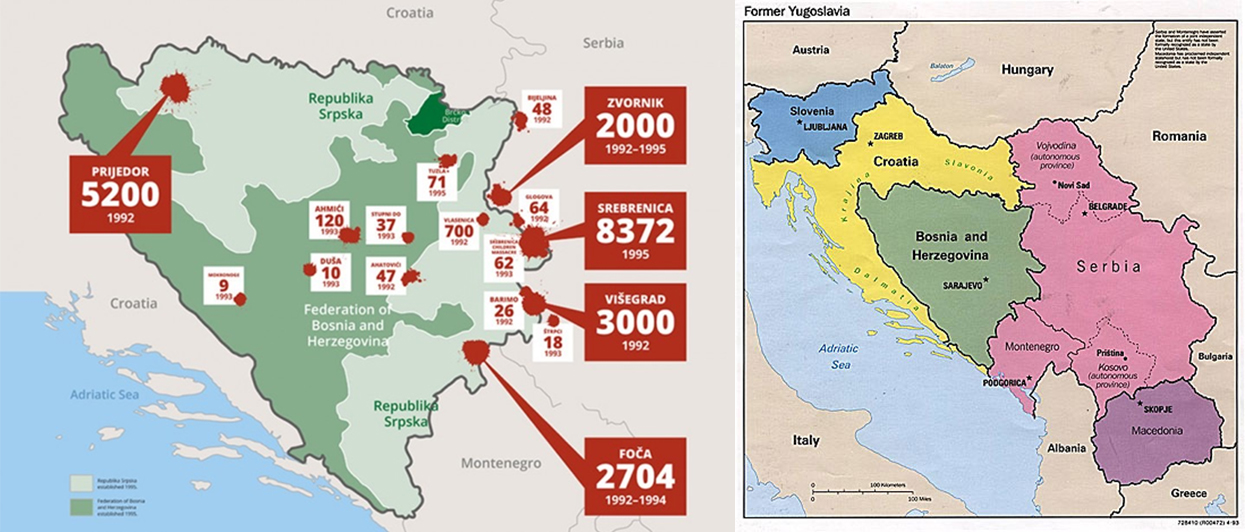
Right after independence Armenian forces invaded Azerbaijani territories in Nagorno Karabakh region, and massacred a large number of Azerbaijani civilians notably in the town of Khojaly, in order to ethnically cleanse the region of Muslims. Pakistan is one of a few countries in the world that recognizes this horrific atrocity as a genocide. There have been reports that, Pakistan covertly organized and transported up to 3000 Hizb-e-Islami fighters working for Gulbadin Hekmetyar to Azerbaijan, and flew them out of Peshawar via Iran onto Baku.22 From where they were sent to the frontlines in Nagorno Karabakh to selflessly fight to save thousands of Azerbaijani lives from the oppression of the Armenian army.23
Another issue that earned enormous respect for Pakistan among the Turks, is how Pakistan went all out to help the Bosnians resist a genocidal Serb aggression in the Yugoslavian Civil War. To understand why Bosnia is important to the Turkish people, we need to look at the historical Ottoman ties to the Balkans. Bosnia was the farthest region of the Ottoman Empire for almost 445 years and Ottomans invested heavily in military and civil infrastructure at the borderlands. One of the Ottoman Grand Viziers had even been a Bosnian named Sokollu Mehmet Pasha and even today a street in the center of Sarajevo is named after him. In October 2011 Mustafa Ceric, the president of the Islamic community of Bosnia and Herzegovina, stated: “Turkey is our mother, so it was, so it will remain.” Turkish President Recep Erdogan has also been quoted as saying that, Alija Izetbegovic the first president of Bosnia had told him that, “Bosnia is an inheritance of the Ottomans.”
In February of 1994, Pakistan’s prime minister accompanied by the Turkish Prime Minister Tansu Ciller arrived in Sarajevo Bosnia. They braved Serb artillery fire from higher ground positions surrounding the Bosnian Capital. They issued statements lamenting the indifference of the European powers, and protested the silence of the international community and expressed their reservations on the unfair arms embargo upon the warring sides. The embargo was not working for the Serbs and Croats who were able to smuggle weapons because it was them who controlled the international border posts. Only the Bosnians being landlocked, couldn't import or even smuggle weapons to protect themselves. This had allowed the ruthless Bosnian Serb General Ratko Mladic to violate the United Nations Safe Zone in Srebrenica, by disregarding the Dutch UN Peacekeeping contingent, who simply stepped aside when confronted with an overwhelming number of Serb troops. This had resulted in one of the worst atrocities of the Bosian War where the vicious Serb forces rounded up and massacred tens of thousands of Bosnian muslim men in a systematic campaign of ethnic cleansing.
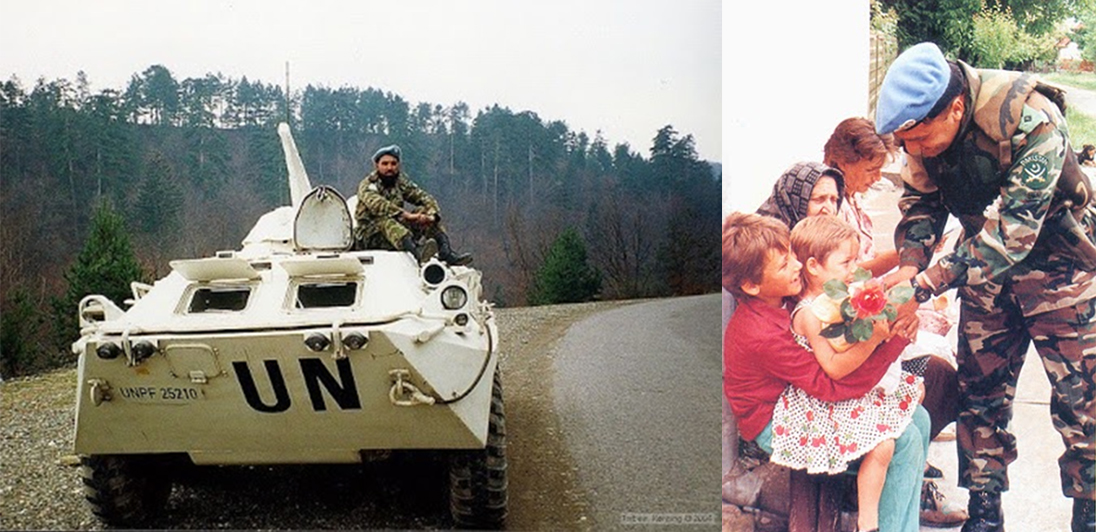
Soldiers of Pakistan Army in UN Peacekeeping Force protecting Bosnian Civilians
In the following years Pakistan and Turkey became the two largest hosts of Bosnian refugees in the world and both countries sent the largest numbers of their soldiers as UN peacekeepers to protect civilians in Bosnia Herzegovina, especially when European countries were pulling their soldiers from UN peacekeeping duties. Pakistan’s President Sardar Farooq Leghari officially declared in a meeting of Muslim countries in Geneva in July 1995 that, the UN arms embargo was illegal and subsequently Pakistan’s intelligence agencies developed and implemented a covert plan to help the Bosnians resist this active genocide. Pakistan sought Saudi financing, Turkish logistic help and tacit American approval to ship large quantities of modern weapons to the Bosinian fighters.24 It developed into such a successful covert operation of systematically supplying weapons and training that, it finally helped turn the tide of the entire war in Bosnia’s favor, and forced the Serbs and the Croats to negotiate for peace. The key factor that helped the Bosnians resist overwhelming Serbs heavy weapons was the arrival of Pakistani manufactured Baktar Shikan Anti Tank Guided Missiles in the hands of the Bosnian soldiers.
This brought an end to the brutal civil war with a negotiated settlement at the Dayton Agreement signed on 14 December 1995, and provided a chance for the Bosnian people to finally live in peace with their neighbors. Pakistan’s immense support for a cause highly dear to the hearts of the Turkish people also helped in bringing the two nations closer.
7. Singapore Mutiny And Ottomans:
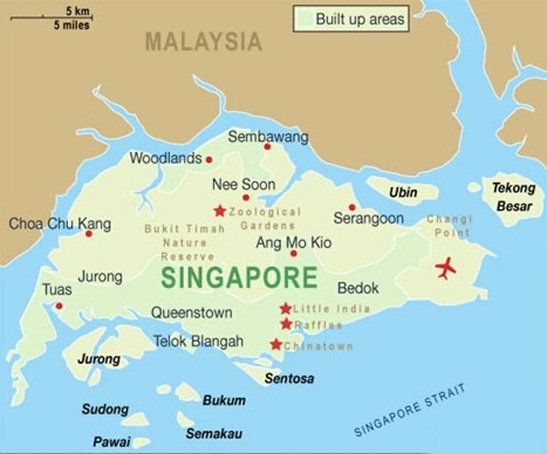
More than half a million Indians fought for the allies as Sepoys in the British Indian Army, and almost 40% of the Indian Army consisted of Muslims during the First World War, some fought in Europe, some fought in Burma, but some were also sent to fight the Ottomans. It is also important to note that first of all, the British Indian Army was a British Army and not an Indian Army, and before 1918 all commissioned officers with ‘Kings Commission’ were exclusively British. They received training in British military academies such as Sandhurst, trained to fight Britain’s colonial wars, made to learn local Indian languages and then sent to India. Native Indians were mostly recruited as foot soldiers or as junior commissioned officers with ‘Viceroy’s Commission,’ and had authority only over Indian troops. Secondly, as part of a disciplined army, Indian ‘sepoys’ had been used by the British to impose colonial rule upon their own native lands to defeat and subjugate them. Thirdly, a major reason why Indian army with a large presence of muslim soldiers was sent to fight in campaigns against Central Powers including Ottomans, in Mesopotamia, North Africa and Europe was due to the British policy of mixing Muslims with non-Muslims in each unit, and because there were relatively few one religion units in the Indian Army.
In spite of the above, there still are extensive records in war archives from the Great War, that detail how Indian Muslims recruited from towns in present day Pakistan, refused to fight the Ottomans and even deserted their positions to fight along the Turks. At the Ottoman ‘Siege of Kut’ in Mesopotamia, General Townsend reported Indian Muslim troops deserting to the Ottomans, and he sent an entire Battaliion composed largely of Muslims away from the frontlines back to Basra.25 British artillery gunner W.D. Lee also recorded explicitly, “several times during the siege I heard of Mohammadans who had left our trenches and deserted to the Turks, but some who were caught in attempting to escape from our lines were shot before their regiments.”26 In March 1915, major general Arther Barret the commander of 6th Indian Division even went so far as, to twice request the return of four companies of Muslim soldiers from Mesopotamia back to India, on the grounds that they could not be depended upon to fight their fellow Muslim Ottomans. One of the most notable of these desertions was of Jemadar Mir Mast Khan Afridi from the 58th Frontier Force (Vaughan Rifles). In 1914 his unit was shipped to France as part of the Indian Infantry Corps in the Ypres Sector. On the night of 15 March 1915 he crossed over to the German lines along with 14 Afridi sepoys. From there he was sent to Turkey to meet the Mufti of Istanbul. He went on to not only recruit a thousand muslim soldiers from Pakistan’s tribal areas to fight for the Ottomans, but he also displayed exceptional bravery on the battlefield, and became a recipient of the highest German gallantry award the ‘Iron Cross’ from German Kaiser Willhelm II. When allied forces eventually surrendered at the Siege of Kut in April 1916, the Ottomans captured 13,000 prisoners. A large number of them were Muslim soldiers belonging to towns in present day Pakistan, who joined the Turkish military as the Ottoman Indian Volunteer Corps. In the winter of 1915-1916 four hundred members of the war hardened Indian Army’s 15th Lancers, a Muslim majority unit fresh from fighting the Germans in Neuve, Chapelle, Auber, Festubert, Loos and Essenes Ridge in France, flat out refused to fight the Ottomans in Mesopotamia. They were sent to patrol the bandits in Persia, and the 15th Lancers were reorganized as a multi religion unit after the war.
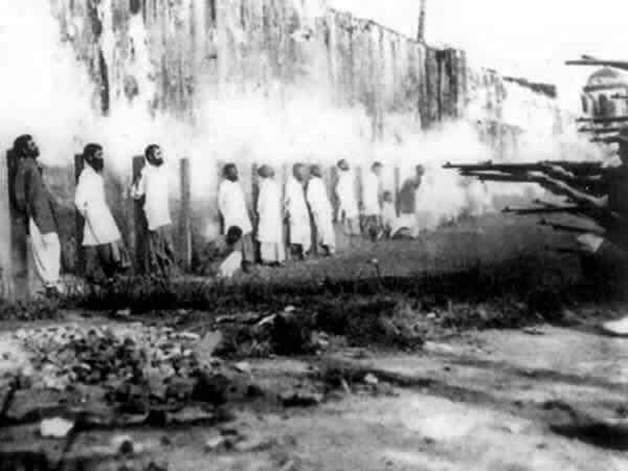
But the most glorious act of solidarity with the Ottoman Turks took place on 15 February 1915 in Singapore. The Great War had officially begun and the Ottomans Turks had entered the war. The 5th Light Infantry Regiment of the British Indian Army was another all Muslim regiment, and consisted mainly of Rajput Punjabis, and Multani Pathans from present day Pakistan. In February of 1915 they were stationed in Singapore to replace the Yorkshire Light Infantry. When rumors spread among Sepoys that they were going to be sent to fight fellow muslim soldiers of the Ottoman Empire, all 800 muslim soldiers turned against their colonial masters, killing 40 British officers and seizing huge amounts of arms and ammunition. Since Singapore is an island, they knew very well that this rebellion would result in certain death, but they still kept resisting British reinforcements arriving in Singapore for almost two days, before they were overwhelmed. Most of them died in battle, many fled into the jungles, and around 200 were captured alive. A public execution by firing squad was held by the British to punish the mutineers. They eventually lost the battle and their lives, but gloriously expressed the lack of their willingness to fight against their Turkish brothers. This incident was widely reported in the Turkish Press and made a huge impression that, if there is a group of people in the world, who are willing to show undying solidarity with the Turks, it is the people from present day Pakistan.
Some or all of the above facts are being taught in the Turkish school system, either at the elementary or at the advanced level, and this is the reason why Turks often go out of their way to show affinity for people from Pakistan. But, this information, regarding some of the brightest episodes of our history, is tragically absent from the Pakistani school system. Our future generations must be kept aware of these historical events, because the selfless dedication of our founding fathers to the principle of fraternity with our fellow Muslims, is indeed worth remembering; and our children must learn and be proud, that we as the people of Pakistan share a glorious history with our Turkish brothers.

1. Khilafat Movement And Turkish War of Independence:
2. National Poet of Pakistan Mohammad Iqbal’s Love For Turkey:
3. Formation Of Turkey’s First National Bank:
4. Pakistan’s Support To Northern Cyprus:
5. Nagorno Karabakh Azerbaijan Conflict And Pakistan:
6. Pakistan's Role In Bosnian War:
7. Singapore Mutiny And Ottomans:

Travelers from Pakistan visiting international destinations face widely varying receptions, some expected, some unexpected, occasionally hostile and often indifferent. However, the reception that Pakistani visitors receive in Turkey is so refreshingly warm that it ends up being a cherished experience for every Pakistani that travels to Turkey for the first time. On one such trip my Taxi chauffeur having learnt that I had arrived from Pakistan, spent the entire journey from airport to the hotel in search of a YouTube video he wished to share with me. I assumed he was looking for a song to share, I felt a little concerned for both our safety, but I decided not to object out of courtesy. Having arrived at the hotel he didn’t want to let me go, until I had seen the video. The language gap, him not speaking in English and me not being able to converse in Turkish, heightened the mystery regarding this video clip. Finally having found the video, fortunately with english subtitles, we watched it together on his mobile phone. It was a Turkish TVNET interview of the Pakistani Consul General in Istanbul Dr Yousuf Junaid who narrated the story of his grandmother who had donated her gold jewelry for the Turkish War of independence as a little girl. The message of sacrifice and mutual affection between the two nations was undoubtedly emotional, and by the time the video ended I was embarrassingly misty eyed. I thanked him for sharing it with me, and hugged the gentleman before saying our goodbyes.
The general impression among Pakistanis is that, the gracious attitude of ordinary Turks towards Pakistanis, be it a complimentary ‘Chai’ in a turkish restaurant or an offer of a seat at a tourist shop, may simply be due to Turkey and Pakistan being fellow muslim nations. Often, this surprising hospitality is attributed to the historical Turkic roots of our past empires and languages. With Turkey emerging as a republic after the fall of the Ottoman Empire and a fight against colonial powers, and Pakistan emerging as a republic after fall of the Mughal Empire and the colonization by British imperialists. I’ve often heard from Turkish friends that history lessons in the Turkish school system teach their students about historical friendship between the people of Pakistan and the Turks. Unfortunately, Pakistani elementary syllabus contains no such lessons, therefore references associated with this fraternal bond carry an element of humbling curiosity for us.

The Mughal Empire and the Ottoman Empire at their peak in 1683
Be it Turkish support to Pakistan when it comes to the Kashmir dispute or other international issues, Pakistanis are well aware of the fact that, Turkey goes out of its way to stand by Pakistan. But to understand this bond of brotherhood, and how it developed over a period of a hundred years we need to take a deeper look at the instances in our own history, when Pakistanis as a people went out of our way to stand by the Turks. Since it is our history, it is important that our younger generations must never be allowed to forget these golden deeds, which keep on bringing our way, the love and deference of our Turkish brothers. To serve this purpose, let’s take a deeper view into the origins of the Turkey Pakistan Brotherhood.
1. Khilafat Movement And Turkish War of Independence:
Khilafat Movement was established after allied victory at the end of the first world war, when Muslim leaders of British India, who would go on to lay the foundations of the Pakistan Movement belonging to All India Muslim League, and a few from the Indian National Congress, joined forces to help the Turks. They not only lobbied the British government against abolition of the Ottoman Caliphate, but also raised funds for Turkish forces to fight allied imperial powers in a war of independence under leadership of Mustafa Kemal Ataturk.
People of Turkey are relatively well versed in the history of the Turkish war of independence and the eventual abolition of Ottoman Caliphate. It is understandable for them to realize the significance of the Khilafat Movement towards their struggle for an independent Turkish Republic, however Pakistanis tend to misunderstand the Khilafat Movement as an effort to help the last Ottoman Caliph hold onto power, after the loss of the Central Powers in the Great War. Hence, it is important to look at the historical context in which the Khilafat Movement was initiated, and how it sought to influence the turn of events in Ottoman Turkey.
Pakistan’s founding fathers living under a colonial British empire after centuries of Muslim rule in India, carried an emotional burden of a progressive loss of an empire and ultimate subjugation to a foreign colonial power. They had a clear realization that the fall of Mughal empire was not the result of a single clash with hegemonic powers, rather it was a slow and steady decline spanning over a hundred years against deviously clever policies of western imperialism. Bengal was lost at the battle of Plassey in 1757, Bihar and Oudh was lost at the battle of Buxar in 1764, Mysore was lost at the Anglo Mysore war in 1799, Sindh was lost at the battle of Miani in 1843, Punjab was lost at the Anglo Sikh war in 1849, and British crown finally imposed direct control over Mughal India by deposing the last Mughal Emperor Bahadur Shah Zafar in 1857.

100 year colonization of Mughal Empire 1757-1857
Therefore, Indian Muslim intellectuals could clearly identify with a similar fall of the Ottoman Empire, that was not a result of defeat in the first world war, rather it was also a result of gradual decline forced by a series of intermittent wars and treaties with the western powers. Crimea was lost in the Russo-Turkish War in 1774, Algeria and Tunisia were lost to the French in 1830 and 1881 respectively, Greece was lost to Britain, France and Russia at the London Protocol in 1829, Balkans and Romania were lost at the treaty of San Stefano in 1878, Egypt was lost to the British in 1882, Libya was lost in Turco-Italian war of 1912, and finally the allied western powers descended on the shores of Gallipoli to inflict a fatal blow upon the remnants of the once mighty Ottoman Empire.

Loss of Ottoman territories up till 1914
Ottoman Empire was not only a Turkish empire,................
It was just the Turks against the world, and the Turks felt disheartened & disillusioned with this lack of ..................read more in the link below..

Shaukat Ali (left) and his brother Mohammad Ali Johar (right)
Ali brothers had begun their careers in fundraising by running fundraising campaigns during the Aligarh Movement, .......
In “surveying Muslim reactions in India in those years preceding World War One,....................................read more in the link below.....

Khilafat Movement’s Green Robed Fundraising Volunteers
The Khilafat Movement was established by the muslim leadership of India, at the end of the war in 1919 to help Turkish government .........read more in the link below...

Ottoman Empire at the start of First World War
A common misconception is that the Khilafat Movement was a campaign to help the Ottoman Caliph hold onto power......read more in the link below......

Consequently, on 24 April 1909 fearing a counter revolution by an autocratic Caliph Abdul Hamid II, the Young Turk led ‘Action Army’ under a charismatic officer Major Ahmed Niyazi imposed martial law in Istanbul, “the two chambers of the Ottoman Parliament reconvened as the Grand National Assembly, and on 27 April 1909 voted to depose Sultan Abdul Hamid II and to install his younger brother Mehmed Resad as Sultan Mehmed V.” 7 This effectively took all political powers away from the Caliph and transferred them to the Young Turk government under leadership of a triumvirate of Enver Pasha, Jemal Pasha and Talat Pasha....read more in the link below....
2. National Poet of Pakistan Mohammad Iqbal’s Love For Turkey:

Having gone through an overview of the Turkish war of independence, Ottoman Caliph’s signing the Treaty Of Sevres, and Khilafat Movement’s support to the war of Turkish independence. It allows us to understand the context of Mohammad Iqbal’s effusive poetry in praise of the spirit of Turkish people, as well as the heroic leadership of Mustafa Kemal Ataturk. Iqbal expressed confidence in the capacity of the Turks to defeat the forces of dogmatism and regenerate themselves as a strong, free nation on the path to progress, and he described reformist policies of the Ankara government including the abolition of caliphate as a ‘judicial choice.’18 Iqbal wrote moving poems in agony at the defeats faced by Ottoman forces in the Balkans, in North Africa and in Arabia. Later, he used his verse to celebrate Turkish victories led by Mustafa Kemal at Canakkale, especially routing the Greek armies into the sea in Izmir, and to the eventual eviction of all non-Muslims foes from Anatolia.
Allama Iqbal was greatly inspired with the resolve of the Turks in those turbulent times, and his poetry follows the progress of Turkish independence in detail. Applauding the process of the abolition of the first Ottoman Parliament leading to the second Grand National Assembly in Ankara, the adoption of the Misak-i-Milli declaration, to the contents of the Turkish constitution of 1924. He has written in approval of Turkish reforms, the abolition of the Sultanate, and the foundation of the Turkish Republic. In his poem Biladul Islam, Iqbal describes Istanbul as the ‘heart of Muslim community.’19

3. Formation Of Turkey’s First National Bank:
The campaigns to collect donations to support the Turkish War of Independence by Muslims from the sub-continent ended up being a very successful effort. So much so that, Mustafa Kemal Ataturk had been personally handed over around six hundred thousand Turkish Liras for the war effort. While only two hundred and twenty thousand were used for the war, the balance of three hundred and eighty thousand Turkish Liras went unused and were returned to Ataturk following the war. In July of 1924, Ataturk stated: “Paramount among measures that will liberate and augment the nation is the establishment of a bank, utterly modern and national in identity, born directly out of the people’s respect and confidence.”
4. Pakistan’s Support To Northern Cyprus:
Pakistan’s unstinted support for the Turks during the Northern Cyprus Crisis is another issue that brought the Turks closer to the people of Pakistan. Let’s briefly take a look at the conflict, in order to understand the importance of Pakistan’s support to Turkey on this issue. As we know, Turkey and Greece both are members of the North Atlantic Treaty Organization NATO, as their defence is ensured by this powerful military alliance. However, in the case of a conflict between Greece and Turkey, western countries tend to lean more towards the Greek positions. The Cypriot conflict of 1974 is a case in point that glaringly proves this bias by the NATO allies of Turkey.

After Turkish defeat in the Turko-Russian War of 1878, Britain reached agreement with the Ottomans to lease Cyprus, as it is a strategic island in the middle of the Mediterranean Sea. The Turks agreed and Britain became the administering authority on the island. In 1912, Britain offered ‘Enosis’ meaning a union of Cyprus with Greece to the Greek state, in exchange for a British military base in Cephalonia or Argostoli in Greece. In 1915 ‘Enosis’ was offered again in return for Greek cooperation in the First World War. Greece refused both these offers. However, Greece and the Greek Cypriot population had always espoused....read more in the link below...
5. Nagorno Karabakh Azerbaijan Conflict And Pakistan:
Another reason for endearment of Pakistan to the Turkish people is our extraordinary assistance to the people of Azerbaijan, and the consistent diplomatic, political and military support to them on the dispute of Nagorno Karabakh. Azerbaijan is also a Turkic country with a 91% ethnically Turkic Azerbaijani population, and currently a member state of both the Turkic Council or Cooperation Council of Turkic States CCTS and the International Organization of Turkic Culture TURKSOY. Due to these historic and cultural ties, Turkey was the first country to recognize Azerbaijan as an independent country. Pakistan was the second country to recognize Azerbaijan after Turkey, six months before the dissolution of the USSR on 12 December 1991. Pakistan is also one of the first countries in the world to open an embassy in Baku.
Right after independence Armenian forces invaded Azerbaijani territories in Nagorno Karabakh region, and massacred a large number of Azerbaijani civilians notably in the town of Khojaly, in order to ethnically cleanse the region of Muslims. Pakistan is one of a few countries in the world that recognizes this horrific atrocity as a genocide. There have been reports that, Pakistan covertly organized and transported up to 3000 Hizb-e-Islami fighters working for Gulbadin Hekmetyar to Azerbaijan, and flew them out of Peshawar via Iran onto Baku.22 From where they were sent to the frontlines in Nagorno Karabakh to selflessly fight to save thousands of Azerbaijani lives from the oppression of the Armenian army.23

To understand how these steps truly affected sentiments of the Turks, we need to consider the historically antagonistic relationship between the Turkish people and the Armernians. Being orthodox Christians, Armenians have traditionally been Russian and Greek allies, and have always been a thorn in the side of Turkish influence in the region and the world. They were the ones who most viciously resisted the Ottoman forces during the Ottoman-Russian wars, fought them viciously in the First World War, and actively sabotaged the Turkish War of independence. When Armenians imposed blatant aggression against Azerbaijan’s independence in Nagorno Karabakh, western powers were generally sympathetic to the Armenian position. Largely due to the lobbying clout of Armenian diaspora in western countries, and due to the Armenians being fellow Christians. Were it not for Pakistan, Turkey would be the only vocal proponent of Azerbaijani positions on this dispute.
As luck would have it again, Pakistan had assumed the presidency of the United Nations Security Council in April of 1993. With the dynamic Jamshed Marker as President we swiftly called a meeting of the United Security Council in April of 1993, that unanimously adopted Resolution no: 822, that was co-sponsored by Pakistan and Turkey, regarding the Azerbaijan Nagorno Karabakh conflict. Despite intense lobbying by Armenian allies, Pakistan succeeded in having the resolution passed, explicitly demanding Armenian army to end the occupation of Azerbaijani territories. Pakistan is the only country in the world that still refuses to recognize Armenia as an independent state until Armenian forces ends the occupation of Nagorno Karabakh, and to this day Pakistan has no diplomatic relations with Armenia.
6. Pakistan's Role In Bosnian War:

Right after independence Armenian forces invaded Azerbaijani territories in Nagorno Karabakh region, and massacred a large number of Azerbaijani civilians notably in the town of Khojaly, in order to ethnically cleanse the region of Muslims. Pakistan is one of a few countries in the world that recognizes this horrific atrocity as a genocide. There have been reports that, Pakistan covertly organized and transported up to 3000 Hizb-e-Islami fighters working for Gulbadin Hekmetyar to Azerbaijan, and flew them out of Peshawar via Iran onto Baku.22 From where they were sent to the frontlines in Nagorno Karabakh to selflessly fight to save thousands of Azerbaijani lives from the oppression of the Armenian army.23
Another issue that earned enormous respect for Pakistan among the Turks, is how Pakistan went all out to help the Bosnians resist a genocidal Serb aggression in the Yugoslavian Civil War. To understand why Bosnia is important to the Turkish people, we need to look at the historical Ottoman ties to the Balkans. Bosnia was the farthest region of the Ottoman Empire for almost 445 years and Ottomans invested heavily in military and civil infrastructure at the borderlands. One of the Ottoman Grand Viziers had even been a Bosnian named Sokollu Mehmet Pasha and even today a street in the center of Sarajevo is named after him. In October 2011 Mustafa Ceric, the president of the Islamic community of Bosnia and Herzegovina, stated: “Turkey is our mother, so it was, so it will remain.” Turkish President Recep Erdogan has also been quoted as saying that, Alija Izetbegovic the first president of Bosnia had told him that, “Bosnia is an inheritance of the Ottomans.”
In February of 1994, Pakistan’s prime minister accompanied by the Turkish Prime Minister Tansu Ciller arrived in Sarajevo Bosnia. They braved Serb artillery fire from higher ground positions surrounding the Bosnian Capital. They issued statements lamenting the indifference of the European powers, and protested the silence of the international community and expressed their reservations on the unfair arms embargo upon the warring sides. The embargo was not working for the Serbs and Croats who were able to smuggle weapons because it was them who controlled the international border posts. Only the Bosnians being landlocked, couldn't import or even smuggle weapons to protect themselves. This had allowed the ruthless Bosnian Serb General Ratko Mladic to violate the United Nations Safe Zone in Srebrenica, by disregarding the Dutch UN Peacekeeping contingent, who simply stepped aside when confronted with an overwhelming number of Serb troops. This had resulted in one of the worst atrocities of the Bosian War where the vicious Serb forces rounded up and massacred tens of thousands of Bosnian muslim men in a systematic campaign of ethnic cleansing.

Soldiers of Pakistan Army in UN Peacekeeping Force protecting Bosnian Civilians
In the following years Pakistan and Turkey became the two largest hosts of Bosnian refugees in the world and both countries sent the largest numbers of their soldiers as UN peacekeepers to protect civilians in Bosnia Herzegovina, especially when European countries were pulling their soldiers from UN peacekeeping duties. Pakistan’s President Sardar Farooq Leghari officially declared in a meeting of Muslim countries in Geneva in July 1995 that, the UN arms embargo was illegal and subsequently Pakistan’s intelligence agencies developed and implemented a covert plan to help the Bosnians resist this active genocide. Pakistan sought Saudi financing, Turkish logistic help and tacit American approval to ship large quantities of modern weapons to the Bosinian fighters.24 It developed into such a successful covert operation of systematically supplying weapons and training that, it finally helped turn the tide of the entire war in Bosnia’s favor, and forced the Serbs and the Croats to negotiate for peace. The key factor that helped the Bosnians resist overwhelming Serbs heavy weapons was the arrival of Pakistani manufactured Baktar Shikan Anti Tank Guided Missiles in the hands of the Bosnian soldiers.
This brought an end to the brutal civil war with a negotiated settlement at the Dayton Agreement signed on 14 December 1995, and provided a chance for the Bosnian people to finally live in peace with their neighbors. Pakistan’s immense support for a cause highly dear to the hearts of the Turkish people also helped in bringing the two nations closer.
7. Singapore Mutiny And Ottomans:

More than half a million Indians fought for the allies as Sepoys in the British Indian Army, and almost 40% of the Indian Army consisted of Muslims during the First World War, some fought in Europe, some fought in Burma, but some were also sent to fight the Ottomans. It is also important to note that first of all, the British Indian Army was a British Army and not an Indian Army, and before 1918 all commissioned officers with ‘Kings Commission’ were exclusively British. They received training in British military academies such as Sandhurst, trained to fight Britain’s colonial wars, made to learn local Indian languages and then sent to India. Native Indians were mostly recruited as foot soldiers or as junior commissioned officers with ‘Viceroy’s Commission,’ and had authority only over Indian troops. Secondly, as part of a disciplined army, Indian ‘sepoys’ had been used by the British to impose colonial rule upon their own native lands to defeat and subjugate them. Thirdly, a major reason why Indian army with a large presence of muslim soldiers was sent to fight in campaigns against Central Powers including Ottomans, in Mesopotamia, North Africa and Europe was due to the British policy of mixing Muslims with non-Muslims in each unit, and because there were relatively few one religion units in the Indian Army.
In spite of the above, there still are extensive records in war archives from the Great War, that detail how Indian Muslims recruited from towns in present day Pakistan, refused to fight the Ottomans and even deserted their positions to fight along the Turks. At the Ottoman ‘Siege of Kut’ in Mesopotamia, General Townsend reported Indian Muslim troops deserting to the Ottomans, and he sent an entire Battaliion composed largely of Muslims away from the frontlines back to Basra.25 British artillery gunner W.D. Lee also recorded explicitly, “several times during the siege I heard of Mohammadans who had left our trenches and deserted to the Turks, but some who were caught in attempting to escape from our lines were shot before their regiments.”26 In March 1915, major general Arther Barret the commander of 6th Indian Division even went so far as, to twice request the return of four companies of Muslim soldiers from Mesopotamia back to India, on the grounds that they could not be depended upon to fight their fellow Muslim Ottomans. One of the most notable of these desertions was of Jemadar Mir Mast Khan Afridi from the 58th Frontier Force (Vaughan Rifles). In 1914 his unit was shipped to France as part of the Indian Infantry Corps in the Ypres Sector. On the night of 15 March 1915 he crossed over to the German lines along with 14 Afridi sepoys. From there he was sent to Turkey to meet the Mufti of Istanbul. He went on to not only recruit a thousand muslim soldiers from Pakistan’s tribal areas to fight for the Ottomans, but he also displayed exceptional bravery on the battlefield, and became a recipient of the highest German gallantry award the ‘Iron Cross’ from German Kaiser Willhelm II. When allied forces eventually surrendered at the Siege of Kut in April 1916, the Ottomans captured 13,000 prisoners. A large number of them were Muslim soldiers belonging to towns in present day Pakistan, who joined the Turkish military as the Ottoman Indian Volunteer Corps. In the winter of 1915-1916 four hundred members of the war hardened Indian Army’s 15th Lancers, a Muslim majority unit fresh from fighting the Germans in Neuve, Chapelle, Auber, Festubert, Loos and Essenes Ridge in France, flat out refused to fight the Ottomans in Mesopotamia. They were sent to patrol the bandits in Persia, and the 15th Lancers were reorganized as a multi religion unit after the war.

But the most glorious act of solidarity with the Ottoman Turks took place on 15 February 1915 in Singapore. The Great War had officially begun and the Ottomans Turks had entered the war. The 5th Light Infantry Regiment of the British Indian Army was another all Muslim regiment, and consisted mainly of Rajput Punjabis, and Multani Pathans from present day Pakistan. In February of 1915 they were stationed in Singapore to replace the Yorkshire Light Infantry. When rumors spread among Sepoys that they were going to be sent to fight fellow muslim soldiers of the Ottoman Empire, all 800 muslim soldiers turned against their colonial masters, killing 40 British officers and seizing huge amounts of arms and ammunition. Since Singapore is an island, they knew very well that this rebellion would result in certain death, but they still kept resisting British reinforcements arriving in Singapore for almost two days, before they were overwhelmed. Most of them died in battle, many fled into the jungles, and around 200 were captured alive. A public execution by firing squad was held by the British to punish the mutineers. They eventually lost the battle and their lives, but gloriously expressed the lack of their willingness to fight against their Turkish brothers. This incident was widely reported in the Turkish Press and made a huge impression that, if there is a group of people in the world, who are willing to show undying solidarity with the Turks, it is the people from present day Pakistan.
Some or all of the above facts are being taught in the Turkish school system, either at the elementary or at the advanced level, and this is the reason why Turks often go out of their way to show affinity for people from Pakistan. But, this information, regarding some of the brightest episodes of our history, is tragically absent from the Pakistani school system. Our future generations must be kept aware of these historical events, because the selfless dedication of our founding fathers to the principle of fraternity with our fellow Muslims, is indeed worth remembering; and our children must learn and be proud, that we as the people of Pakistan share a glorious history with our Turkish brothers.
Kardeş: The origins of Pakistan-Turkiye brotherhood
Why do Pakistanis like Turkey so much? The bond between Turkey and Pakistan is much deeper than you might imagine....
www.brecorder.com
- Featured Thumbs
- http://i.brecorder.com/wp-content/uploads/2020/05/pak-turkey.jpg


















